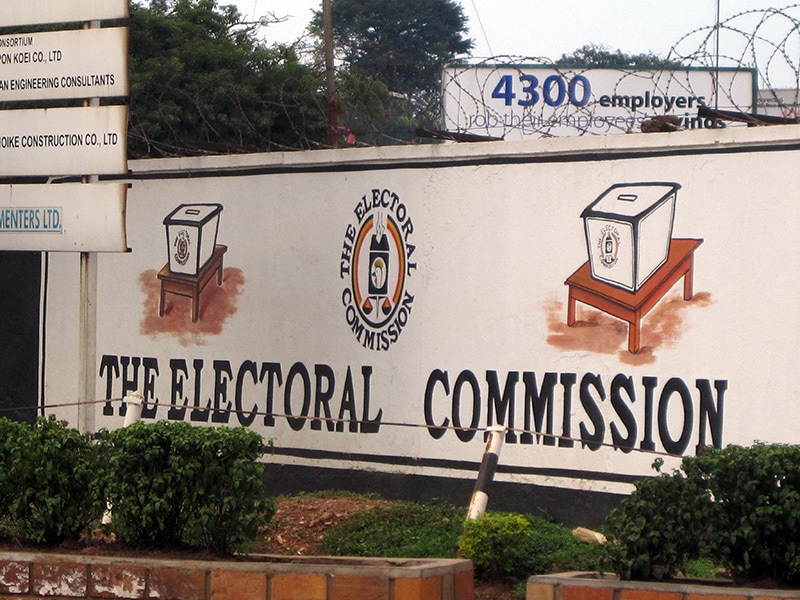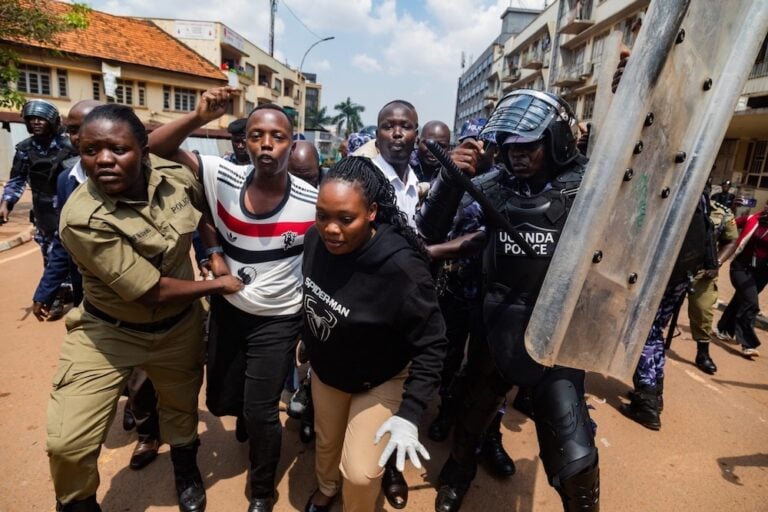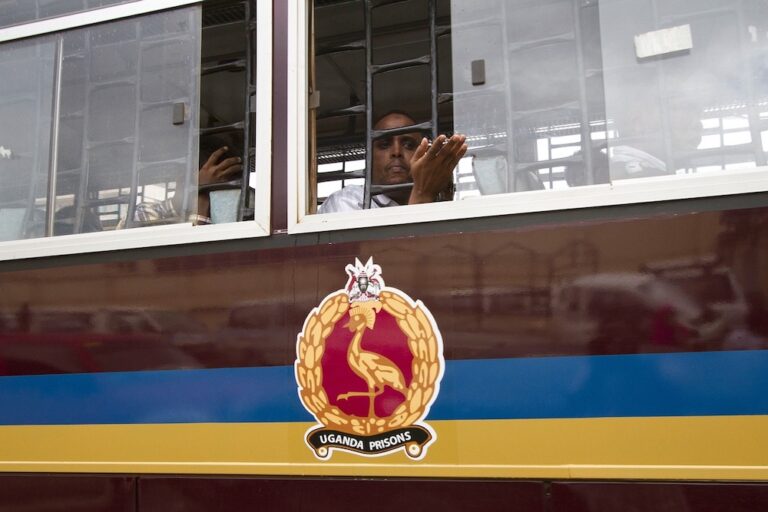Uganda's Independent Electoral Commission has suspended media houses from airing elections-voter mobilization campaign messages. The Commission contends that the messages mobilize Ugandans to vote for change at the expense of the ruling party.
This statement was originally published on hrnjuganda.org on 2 December 2015.
On 30 November 2015, Uganda’s elections body – the Independent Electoral Commission – suspended media houses from airing elections-voter mobilization campaign messages, saying that some of their content were anti-ruling party, but favored the opposition. The Commission contends that the messages mobilize Ugandans to vote for change at the expense of the ruling party.
“Some of the material we have been hearing in Luganda (Local language) and English, some of us are complaining about them… what are the interpretations of the wider implications of your messages?” asked the Commission chairperson, Eng. Badru Kiggundu. He ordered that all such messages developed by civil society must first be endorsed by the Commission before airing, “Anything you develop, you have to share it with us (Commission) before you go out in the public, if you do without us, we’ll disown you.” Eng. Kiggundu said in a meeting with the Citizens Coalition on Electoral Democracy in Uganda (CCEDU) at the Commission offices in Kampala.
CCEDU is a civil society coalition that advocates for and promotes integrity, transparency and active citizen participation in Uganda’s electoral process. It is currently running a voter mobilisation campaign dubbed ‘Topowa, Honour Your Vote’ which started about two months ago to encourage, motivate and inspire Ugandans to peacefully, actively and responsibly participate in the forthcoming elections. TOPOWA was banned by the Commission on 26th Nov. 2015, citing it a biased voter education campaign. The campaign points out the need to improve bad roads, poverty, corruption, unemployment, poor health services among others.
“The message is only fit for the opposition, so you could remove CCEDU and put any of the opposition parties. This can never be campaign material for the NRM; it can only be for the opposition,” another commissioner observed. The Commission spokesperson, Jotham Taremwa described the message as advocating for change: “this Topowa message simply means vote for change. This message can only be appreciated by those opposed to NRM.”
CCEDU chairperson Dr. Livingstone Ssewanyana, dismissed the allegations of campaigning for change, “Our campaign is about mobilizing the voters who don’t turn to vote. We are non-partisan; our message was not about NRM, DP or others, but how to put up a message that can appeal to all people. We pre-tested this message for a long time, none of the common people we are talking about expressed discomfort.”
The CCEDU national coordinator Crispy Kaheru tasked the Commission to name the complainant, although no conclusive response was given by the Commission. He warned the Commission against taking partisan sides, “Your criticism should be in honesty. Let us not be drawn into this trivial politics of polarization that you either stand here or there.”
Kaheru retorted that it was illegal for the Commission to brand the campaign as calling for change. “It’s illegal and suicidal. I would want the Commission to apologise to CCEDU and to correct the impression that Topowa means vote for change.”
The meeting resolved to allow the ongoing TV and radio campaigns go on, while those that had stopped not to resume until a 5-man team from the Commission headed by Commissioner Justice Mugabi and CCEDU sit to review the said messages within five days.



